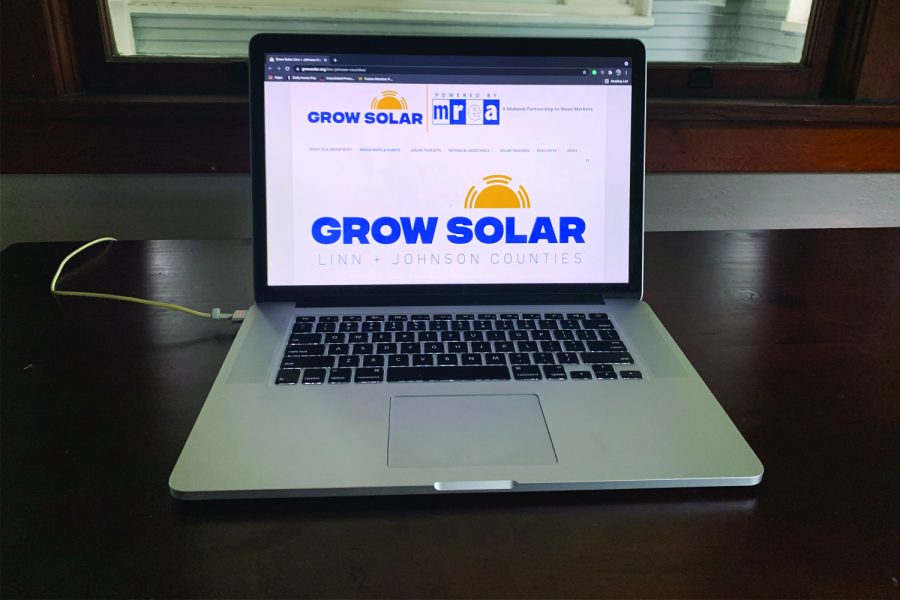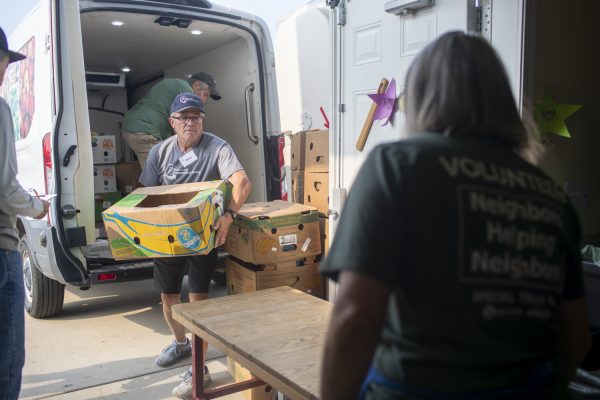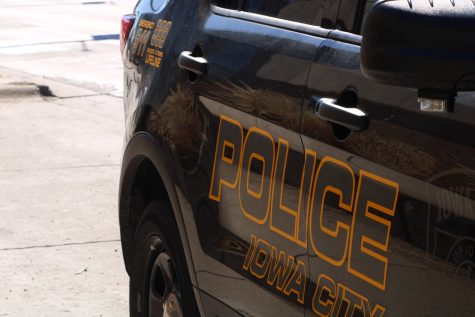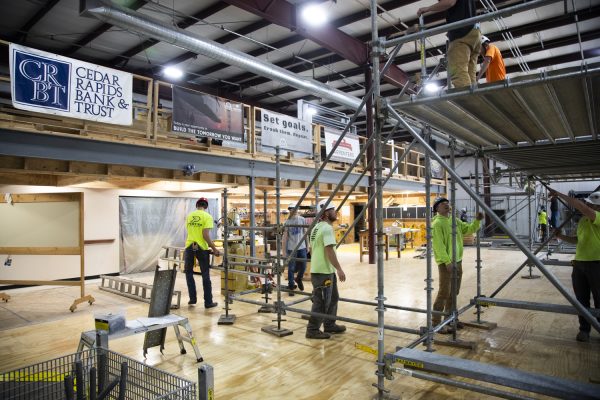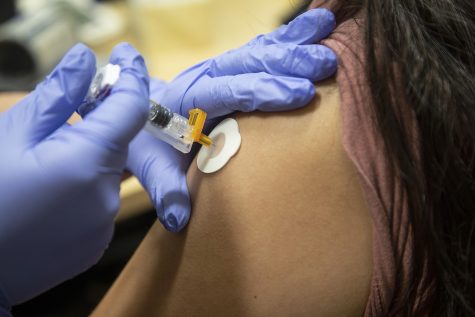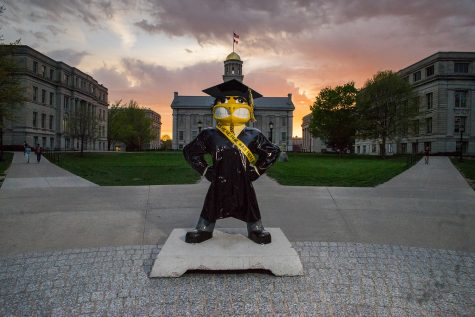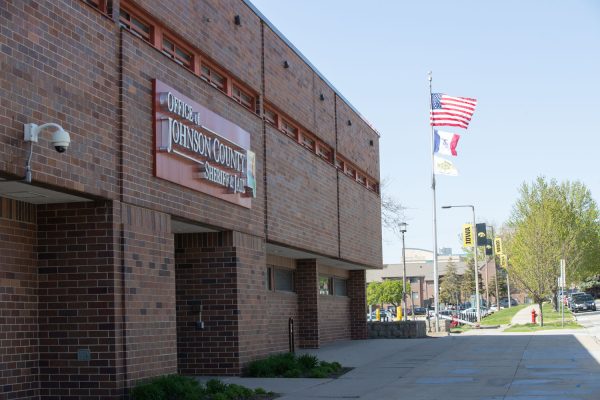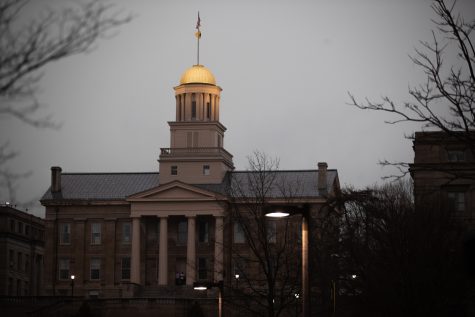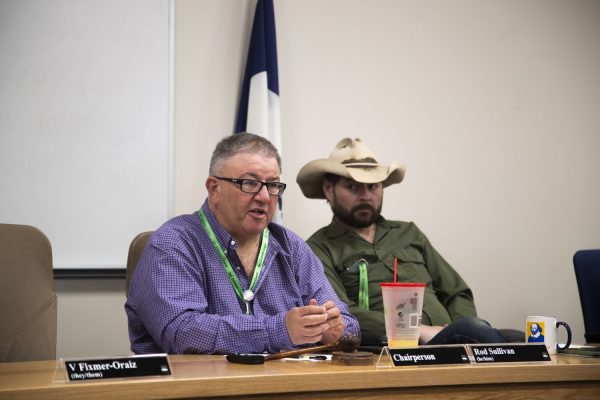Johnson County committed to becoming more sustainable
Through a joint project and a 2018 comprehensive plan, Johnson County is implementing efforts to be more sustainable.
The Grow Solar website is shown on Wednesday, July 21, 2021.
July 20, 2021
Johnson County is making efforts to implement renewable energy throughout the county.
Grow Solar, a joint project between Johnson County and Linn County, is increasing solar education and lowering the costs of buying solar panels by hosting solar power hours and group buys.
Johnson County hopes to be a role model to other counties and communities in its efforts to be a more sustainable county, Johnson County sustainability coordinator Becky Solgin said.
A group buy lowers the solar panel installer’s “soft costs” by educating customers in groups. The Grow Solar website states that the overall effect of a group buy is that lower prices businesses and homeowners pay for their solar array and communities can achieve their sustainability goals.
Grow Solar, a project created by Midwest Renewable Energy Association in Wisconsin, works with counties such as Linn and Johnson Counties to make solar more affordable for residents.
“Linn and Johnson Counties, and the municipal partners they bring to the table, are a shining example of cooperative efforts to help residents understand solar and reduce their electricity bills,” Solar Program Director at MREA Peter Murphy said.
MREA reached out to Johnson County five years ago, Soglin said. At the time, Johnson County was rolling out a process similar to Growing Solar, called SolSmart – a U.S. Department of Energy-funded program to educate communities about renewable energy.
To reward communities for their energy accessibility and sustainability achievements, SolSmart awards gold, silver, and bronze designation, as previously reported by *The Daily Iowan*. Johnson County earned Gold in 2017.
RELATED: Night Mayor confronts nightmare of Iowa City bathrooms
“Johnson County was the first county in both Iowa and the Midwest to earn the gold community designation. Since then, Linn County also has earned Gold as have some other counties in the Midwest,” Soglin said.
In order to meet gold community designation, a community must reach 200 points in the SolSmart criteria and two prerequisite criteria, complete permit turnaround time, and complete solar in-zoning. SolSmart doesn’t have a timeline to reach a designation – it depends on when the community starts.
“We don’t have all the answers. We are trying to learn from others in our own experience,” Soglin said. “The more we can try to make our county sustainable, I would hope, the more others can also learn from us and do the same.”
Johnson County has been participating in Grow Solar since 2018, with 925 participants in the Solar Power Hours.
Countywide, 221 properties have added solar, and 1,430 kilowatts of solar power have been installed. These efforts resulted in bypassing the equivalent of 1,454,675 pounds of coal burned.
“One thing we do want to emphasize while it’s been primarily homeowners who have participated in the program,” Soglin said. “We have had some people who have farms and they’ve added to some buildings of their farm. Certainly, businesses are welcome as well so both homeowners, businesses, and farms are all welcome to attend our program.”
For Linn County, this is the third year they have been participating in Grow Solar, which started in 2017.
“I think, for me, the biggest impact is just like the value of communication of solar,” Linn County sustainability manager Tamara Marcus said.
According to the U.S. Department of Energy, the amount of sunlight that hits the surface of the Earth in an hour and a half is enough to power the world’s energy for over a year.
Since the 2019 Climate Resolution Act, Linn County committed to greenhouse gases emission reduction targets, Marcus said.
“I guess I want to honor that history of the county being committed to recognizing that these issues, issues of sustainability, issues of climate change and adaptation, are important,” Marcus said.
Johnson County has been looking into sustainability since 2015, when the Johnson County Board of Supervisors wanted to make the board’s operation more sustainable.
“We started adding solar to our own operation,” Soglin said. “That way we could understand what the process was and then we could help the people in Johnson County understand the benefits.”
The Secondary Roads Department buildings were the first Johnson County buildings to have had solar panels installed in 2015.
“The panels will generate nearly 86 kW of energy each year for the Secondary Roads Shop and West Garage,” stated in a 2015 Johnson County Sustainability update.
Johnson County has a comprehensive plan for the county and a chapter of the plan is revolving around sustainability.
“Part of that includes doing things like supporting and advancing energy efficiency, resource conservation, and renewable energy programs,” Soglin said.



